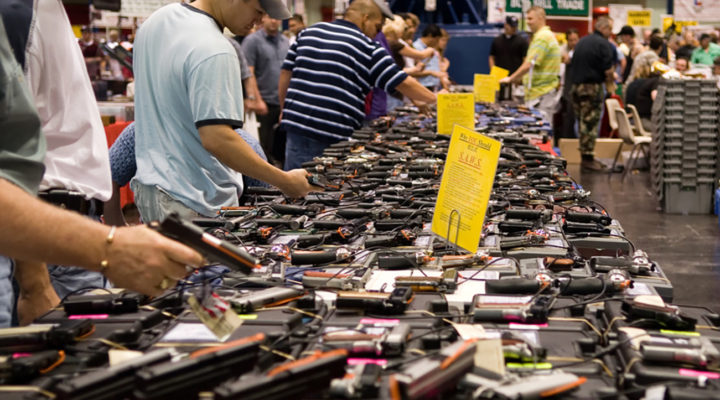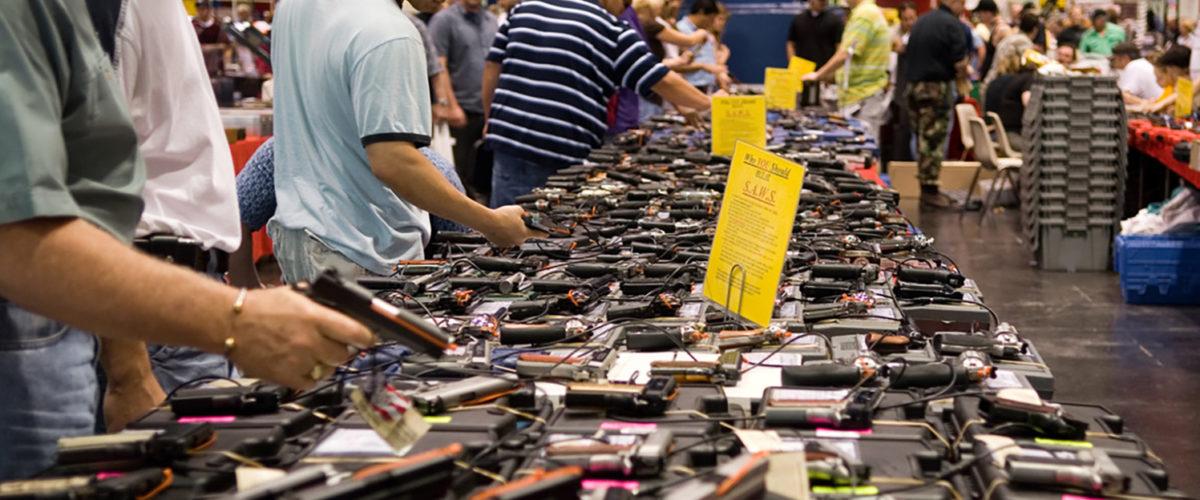More and more Americans are moving away from organized religion and toward all manner of alternative spiritual paths.
And newly published research suggests that guns may be replacing God, scripture and community for many in the U.S.
That largely means white adult men mostly in rural areas who have experienced, or fear they will experience, economic hardship, according to a study titled “Gun Culture in Action” by Baylor University scholars Paul Froese and F. Carson Mencken.
Newly published research suggests that guns may be replacing God, scripture and community for many in the U.S.
The pair found that Americans in that population group reported the highest levels of emotional, moral and even spiritual attachments to their firearms.
Froese and Mencken created a scale measuring how safe, responsible, confident and patriotic gun ownership make survey respondents feel. Feelings of control over fate, value to family and community, and respect also were examined.
“You add that up and it gives you a score which gives your level of ‘gun empowerment,’” Froese told Baptist News Global.
The higher the score, the more likely respondents were to feel restored and empowered by firearms.
Greater attachment to guns also indicated lower levels of participation in church or other religious communities, he said.
“They may say they are religious and Christian, but if you dig down, they are less likely to go to church, to read the Bible or be attached to a religious community.”
That’s not to say that higher levels of faith involvement dictate lower levels of gun ownership.
“Someone active in a church community may own a gun and feel safer, but that’s not to say the gun gives them meaning and purpose,” Froese said. “What we are finding is that someone very involved in a religious community is less likely to feel strong gun empowerment.”
For their study, Froese and Mencken scoured data gathered in the Baylor Religion Survey, a series of extensive studies conducted in four waves from 2008 to 2017. The research drills into American attitudes, behaviors and beliefs around religion.
They used information from the 2014 wave, conducted by Gallup, for their gun study which has been published by the journal Social Problems.
“Guns and their inherent power restore in some people a sense of control stripped away by the economic consequences of globalism,” Mencken said in Baylor’s announcement of the study.
“The ability to protect their property, families and communities is restorative,” he said.
The data he and Froese studied came from questions on gun empowerment asked of 577 gun owners. They were asked what types of firearms they own and why they own them. They also were asked to describe their attitudes on firearm polices or proposed policies, such as background checks, mental health screening and violence in the media.
The study found that firearm owners most empowered by their guns are more likely to be white, married men in rural areas. They are politically more conservative and alienated from society.
Those men also are more likely to express extreme patriotism and, at the same time, extremely anti-government sentiments.
Respondents in this category make a distinction between the military and police, whom they support, and the larger government, which they distrust.
“It is white men who own guns who say they are patriotic who are also most likely to say it’s OK to use violence against the government,” Froese said.



